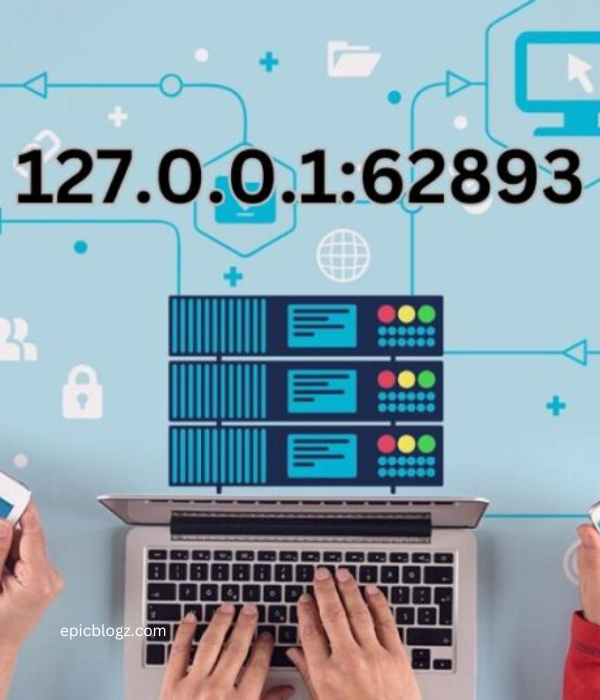Mastering 127.0.0.1:62893 for Secure and Efficient Development
In the world of networking and software development, the term localhost is a fundamental concept that every developer should understand. Specifically, 127.0.0.1:62893 represents a powerful combination that allows your computer to communicate with itself, creating a versatile environment for testing and development. This blog post will delve into the significance of 127.0.0.1:62893, its benefits, potential issues, troubleshooting tips, security measures, and alternatives for local development.
Understanding 127.0.0.1:62893
What is 127.0.0.1?
127.0.0.1 is known as the loopback address, which is a special IP address that directs traffic back to the same machine. This means that any network request sent to 127.0.0.1 will be processed by the local computer, allowing for seamless communication without the need for external networks. The loopback address is crucial for testing and development, as it provides a safe and isolated environment for running applications.
What is Port 62893?
In networking, a port is a communication endpoint that allows different services to run on the same IP address. Port 62893 is simply one of the many available ports that can be used for various applications. When combined with 127.0.0.1, it creates a specific address that developers can use to access services running on their local machine. This setup is particularly useful for testing web applications, databases, and other services without exposing them to the outside world.
Benefits of Using Localhost
Using 127.0.0.1:62893 offers numerous advantages for developers:
1. Isolated Environment
One of the primary benefits of using localhost is the ability to create an isolated environment for testing. This means that developers can run applications without the risk of exposing sensitive data or code to external networks. This isolation is especially important when working on projects that require strict security measures.
2. Faster Debugging
Debugging can be a time-consuming process, but using 127.0.0.1:62893 allows developers to quickly test and identify issues within their applications. Since the application is running locally, developers can make changes and see the results in real-time, significantly speeding up the debugging process.
3. Improved Performance
Running applications on localhost often results in better performance compared to deploying them on external servers. Since there is no network latency to consider, applications can respond more quickly to user input, leading to a smoother user experience. This is particularly beneficial during the development phase when rapid iteration is essential.
4. Reduced Resource Usage
Localhost environments typically require fewer resources than running applications on separate servers. By utilizing 127.0.0.1:62893, developers can save on server costs and reduce the complexity of their development setup. This efficiency allows for more focus on coding and less on infrastructure management.
5. Simplified Testing
Testing applications on localhost simplifies the process, as developers can easily simulate different scenarios without the need for a live server. This allows for comprehensive testing of features, performance, and security before deploying the application to a production environment.
Potential Issues and Troubleshooting
While using 127.0.0.1:62893 offers many benefits, developers should be aware of potential issues that may arise:
1. Port Conflicts
Running multiple services on localhost can lead to port conflicts, where different applications attempt to use the same port number. This can result in errors and prevent applications from starting correctly. To resolve this issue, developers can either change the port number for one of the services or configure the applications to use different ports.
2. Firewall Restrictions
Firewalls may block access to certain ports, including 62893, which can prevent applications from running on localhost. To resolve this, developers can add an exception for port 62893 in their firewall settings. This ensures that the necessary traffic can flow freely to and from the localhost environment.
3. Incorrect Configuration
If an application is not configured correctly to use 127.0.0.1:62893, it may not be able to connect to the localhost environment. Developers should ensure that all application settings are correctly configured according to the instructions provided by the application’s documentation. Double-checking configuration files and settings can help prevent connectivity issues.
4. Resource Limitations
While localhost environments are generally efficient, developers may encounter resource limitations if they try to run multiple resource-intensive applications simultaneously. Monitoring system performance and optimizing resource usage can help mitigate these issues.
Securing Localhost Connections
Even though localhost traffic is not exposed to the internet, it is still essential to implement security measures to protect against potential vulnerabilities. Here are some strategies to secure 127.0.0.1:62893 connections:
1. Firewall Configuration
Setting up your firewall correctly is crucial for restricting access to this port and allowing connections solely from the local host. Ensure that your firewall rules are configured to block external traffic while permitting local connections.
2. Access Controls
Implement strict access controls to ensure that only authorized users and processes can interact with the localhost server. This can involve setting up user permissions and authentication mechanisms to safeguard your development environment.
3. SSL/TLS Encryption
Using SSL/TLS to encrypt data transmitted over the localhost network adds an extra layer of security. While localhost traffic is inherently more secure than external traffic, encryption helps protect against potential vulnerabilities and ensures data integrity.
4. Regular Updates
Keeping your server software, applications, and operating system regularly updated is vital for maintaining security. Updates often include patches for known vulnerabilities, so staying current helps protect your localhost environment from potential threats.
5. Secure Coding Practices
Adopting secure coding practices is essential for preventing common vulnerabilities such as SQL injection, cross-site scripting (XSS), and other attacks. Implementing input validation, output encoding, and proper error handling can help safeguard your applications.
Alternatives to Localhost
While 127.0.0.1:62893 is a powerful tool for local development, there are alternative methods for running applications in isolated environments:
1. Virtual Machines
Virtual machines (VMs) allow developers to create separate environments for testing applications, similar to using localhost. VMs can run different operating systems and configurations, providing flexibility for testing various scenarios. However, they typically require more resources and setup compared to using localhost.
2. Containerization
Containerization technologies like Docker enable developers to package applications and their dependencies into containers. These containers can be easily deployed and run in isolated environments, providing a more scalable and portable solution compared to using localhost or virtual machines. Docker containers are lightweight and can be managed efficiently, making them a popular choice for modern development.
3. Cloud-based Development Environments
Cloud-based development environments, such as AWS Cloud9 or Google Cloud Shell, provide developers with the ability to write, run, and debug code directly from their browsers. These services offer flexibility and accessibility, allowing developers to work from anywhere without the need for local installations. While cloud-based environments may not provide the same level of isolation as localhost, they can be a suitable alternative for collaborative projects.
4. Remote Development Environments
Remote development environments allow developers to work on applications hosted on remote servers. This approach can be beneficial for teams working on large-scale projects or when collaborating with remote team members. However, remote environments may introduce latency and require a stable internet connection.
Conclusion
127.0.0.1:62893 is a powerful tool for developers looking to create secure and efficient development environments. By utilizing this localhost address, developers can quickly test and debug applications without exposing them to external networks. However, it’s essential to be aware of potential issues and know how to troubleshoot them, such as port conflicts and firewall restrictions.
To ensure the security of localhost connections, developers should implement methods such as firewall configuration, access controls, SSL/TLS encryption, regular updates, and secure coding practices. While 127.0.0.1:62893 is a valuable tool, there are also alternative methods for running applications in isolated environments, such as virtual machines, containerization, and cloud-based development environments.
FAQs
1. What is the significance of 127.0.0.1?
127.0.0.1 is the loopback address that allows a computer to communicate with itself. It is used for testing and development purposes, enabling developers to run applications locally without exposing them to external networks.
2. How do I access a service running on 127.0.0.1:62893?
To access a service running on 127.0.0.1:62893, simply enter the address into your web browser or application. If the service is configured correctly, you should be able to interact with it as if it were hosted on a remote server.
3. What should I do if I encounter a port conflict on localhost?
If you encounter a port conflict on localhost, you can either change the port number for one of the conflicting services or configure the applications to use different ports. Check the documentation for each application to find instructions on how to change the port settings.
4. How can I secure my localhost environment?
To secure your localhost environment, implement firewall configurations, access controls, SSL/TLS encryption, regular updates, and secure coding practices. These measures will help protect your applications and data from potential vulnerabilities.
5. Are there any alternatives to using localhost for development?
Yes, alternatives to using localhost for development include virtual machines, containerization (e.g., Docker), cloud-based development environments, and remote development environments. Each option has its pros and cons, so consider your specific needs when choosing the best approach.







